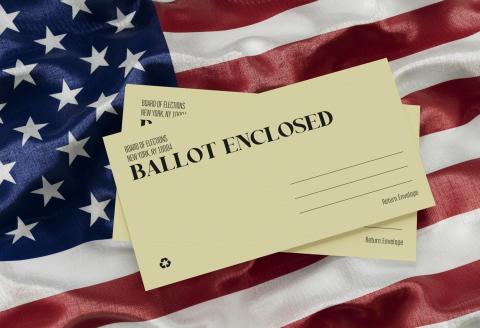Photo Credit: Planet Volumes / Unsplash
One thing that voters can inevitably count on after Election Night 2024 is that regardless of who wins, there will be calls in key battleground states for recounts.
It happened in 2016, 2020, and it is all but certain to happen in 2024 as whoever wins between Donald Trump and Kamala Harris is expected to do so by a slim margin.
Neither side likes to lose, and they will insist that there had to be errors in the initial count if they come up short in a state that could make or break an Electoral College win.
Still, research from the nonpartisan voting reform group FairVote found that recounts are not that common in US elections, and a change in outcome is even rarer.
Election Recounts: Should States Change Their Approach?
FairVote looked at nearly 7,000 statewide elections from 2000 to 2023 and found that in that time, only 36 races resulted in complete statewide recounts.
Most of these (23) were automatic recounts, while 13 were requested. This means that there were less than 2 recounts per year from 2000 to the present.
Of the 36 recounts, only 3 changed the outcome of the election. The correction in every case was so small that the original margin of victory was less than 0.06 percentage points.
These races included the 2004 gubernatorial election in Washington, the 2006 state auditor race in Vermont, and the 2006 US Senate election in Minnesota.
In other words, no one should expect a recount to change election outcomes -- especially in the presidential election, which only saw 3 complete statewide recounts in 23 years.
In fact, FairVote found that recounts are much more likely to widen the gap between the candidates.
“The key takeaway from this report is how accurate our election results are," said Deb Otis, FairVote’s Director of Research and Policy and author of the report.
"States should have a process in place for recounts to ensure voter trust and confidence, but we should not expect recounts to change outcomes unless the margin is razor-thin."
What States Need: Automatic vs Campaign-Requested Recounts
FairVote believes every state should have processes in place that automatically trigger a recount in the event that the margin of victory is within the threshold of 0.1%.
A majority of states (27) do not have automatic recount laws in place. However, 26 of these states allow petitioners, including campaigns, to request recounts.
FairVote's report notes that Mississippi is the only state in the US that has no recount procedure in place at all.
It also points out that most states that allow campaigns to request a recount do not have a threshold limit in place to protect against a frivolous endeavor.
"On the state level, there have been several noteworthy campaign-funded recounts for which an outcome reversal was not plausible," the report states.
One example provided was Joey Gilbert’s 2022 gubernatorial campaign in Nevada. Gilbert paid $190,000 to recount votes in a race he trailed by 11 percentage points.
Tina Peters, a secretary of state candidate in Colorado, paid even more ($256,000) for a statewide recount she trailed by a wider margin (14 percentage points).
This does not even touch partial recounts, which occurred in the 2020 presidential election in several states -- costing the Trump campaign and Trump organizers millions of dollars.
"In 2020, five pro-Donald Trump organizations gave $5.6 million to fund a recount in Maricopa County, the most populous county in Arizona," the report states.
The originally tally showed Biden winning Arizona with 0.3% of the vote, which was too high a margin to trigger an automatic recount, but Trump organizers insisted.
So, what happened in Maricopa? Ninety-nine more votes for Biden and 261 fewer votes for Trump. The petitioners paid all that money only for their candidate to lose votes.
It is worth noting that Biden's total vote advantage in the original tally was 10,400 votes. Statewide recounts at most lead to changes that are limited to 3 digits.
This is why FairVote recommends a threshold of 0.1% to trigger an automatic runoff and believes states should restrict campaign requests to extremely tight elections.
This, the group hopes, will facilitate greater trust and confidence in elections by ensuring an accurate count when it's close and not raising doubt when it's not.
“If candidates call for a recount when they’re trailing a statewide race by more than one-tenth of one percentage point, it’s extremely unlikely to change the outcome," Otis said.
This is something for voters to keep in mind going into Election Day.
Neither side likes to lose, but an increasing demand by campaigns and organizers for recounts only emboldens mistrust in the counting process.
Mistrust then fuels conspiracy theories -- which only promote calamity and chaos.
The 2024 presidential election could be the closest in history, but unless a state is looking at a difference of hundreds of votes (as opposed to thousands), history shows there's no reason to question the outcome.
